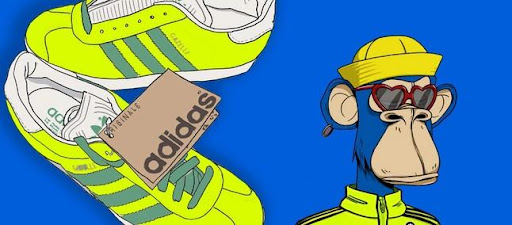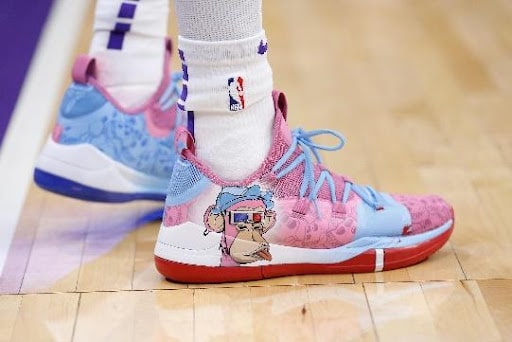An NFT, as is now known, is a unit of information recorded on a blockchain, relating to a specific asset that is not interchangeable.
In a simplified and romantic sense, some have argued that we are ultimately NFTs: unique, unrepeatable, aware of our past.
NFTs are indeed indivisible, unique digital assets, and can represent both tangible and intangible elements, creating digital scarcity. It is also no secret that one of the most important applications is for collectors’ items and works of art.
A magnifying glass on NFTs
But what does a Web3 user buy when he becomes the owner of an NFT of a work of art?
Some commentators have tried to draw an analogy between buying a digital NFT and buying the physical original of a painting or design object. However, this analogy does not hold.
First of all, when a natural person buys a painting or a piece of furniture from a gallery, what he buys is the “tangible property” of that good, i.e. the material availability of the painting, the design chair, the canvas, but NOT the copyright and the intellectual property on the work (or, to put it in English, the copyright), which is configured as the author’s exclusive right to economically exploit the work and, by way of example, to reproduce, disseminate, modify and use it in any way or form.
Furthermore, NFTs, being units of information recorded on a blockchain, not only do they generally not entail the transfer of copyright, but not even the “tangible ownership” of the physical or digital work incorporated.
In fact, well-known platforms used for the exchange and sale of NFTs such as, for example, Rarible and SuperRare have immediately and expressly identified the issue of copyright on the work associated with the NFT, reporting in their respective T.O.S. (Terms of Services) the following: “NFT Ownership ≠ Copyright Ownership”.
In other words, copyright ownership is separate and distinct from ownership of any tangible object (e.g., the painting) or digital asset (e.g., a non-fungible token) in which the work is embedded, unless the parties (creator and purchaser) have expressly agreed to assign the intellectual property rights.
The purchaser of the NFT therefore generally acquires a licence to “show off, promote, and share” the artwork contained in the NFT, for as long as he owns it, within his wallet and on marketplace platforms.
BAYC: an example of wide success
And here we are, talking about Yuga Labs LLC and how this reality has already revolutionized the “traditional” NFT landscape and the relationship between creators and owners of collectibles described above.

For the uninitiated, Yuga Labs is the company that developed the so-called “Bored Ape Yacht Club” (“Exclusive Bored Ape Club”) phenomenon that, at least in part, has transformed the way the world views digital art and NFTs.
BAYC is a club founded by two young “literary nerds”, as they call themselves, inspired by the success of the CryptoPunks collectibles (illustrations of tiny pixelated beings developed by Larva Labs) and whose identity is hidden behind the pseudonyms Gargamel and Gordon Goner.
The “Bored Apes” illustrations are probably the most iconic NFT project to date, responsible for the rise in popularity of the whole scene.
The origin of the decision to make NFTs of “bored apes” is also quite curious, and is told by the creators themselves on the company’s official website in this way:
“There’s a long history of crypto traders affectionately referring to themselves as “apes”. (the expression “aping it” used in the context of cryptocurrencies refers to losing a lot of money, editor’s note).
It’s one of the reasons why some of the most valuable NFTs in the CryptoPunks collection are apes. We imagined a future where crypto changed the world, where everybody in crypto ‘made it’ (Supercycle etc.). Everyone who ‘aped’ or went hard into crypto became rich beyond their wildest imagination. But then what? What’s a Bored Ape to do?
Our answer: Hang out in a secret club in the swamp, for apes only. And write graffiti on a collaborative pixel board on the club’s Bathroom wall”.
The story of BAYC
The first batch of Bored Ape NFTs, the work of freelance illustrators hired by Yuga Labs, launched in April 2021 (at the same time as our hands-on guide to NFTs) and consisted of ten thousand illustrations of bored, scruffy, punk and world-weary monkeys, all different and all selling within 24 hours, for $220 each. But this was only the beginning.
The exclusive club concept conceived by Goner and Gargamel became a reality almost immediately. The first owners of the Bored Ape began to replace their profile picture on various media with the monkey they had purchased, which led to the identification of a sign of recognition, a sort of status symbol that determined a precise membership in the Bored Ape community.
From that moment on, thanks to the Secondary Market, the amount spent on Bored Ape collectibles has literally skyrocketed. Currently, the floor price of the Bored Ape collectibles is 92 ETH, corresponding to approximately 250,000 USD (the floor price can be found, for example, at the following link).
The popularity of the Bored Ape collectibles, including the likes of NBA champion Stephen Curry, artists such as Mike Shinoda (Linking Park) and Steve Aoki, and presenter Jimmy Fellon, who have joined the ape’s community of owners, has triggered a series of ambitious and innovative projects.
Music industry giant Universal Music, for example, has enlisted a team of animators to transform these 2D monkeys into 3D beings capable of making appearances and performing in the Metaverse (for more on this, our studio recently published a guide on how to survive ‘legally’ in the metaverse).
Also, producer and songwriter Timbaland has partnered with Ape-In Productions (AIP) – an entertainment and virtual community company, launching a band of metaverse ‘Bored Apes’ called TheZoo, whose debut single ‘ApeSh!t’, produced by Timbaland, is currently available as an NFT on the OpenSea platform.
Also noteworthy is the collaboration with Adidas, unveiled in late 2021, which made Bored Ape the German company’s manifesto for its entry into the Metaverse.

And indeed, Adidas entered the metaverse by bringing as its ambassador Indigo Herz himself, a Bored Ape avatar dressed in a banana yellow Firebird jumpsuit, a matching bucket hat and a set of heart-shaped glasses resting on his disinterested eyes. The aforementioned monkey’s NFT was sold in September for 46 ETH (about $156,000 at the time), according to data on OpenSea.

Another interesting story involves an athlete who has taken his Bored Ape to the next level, with shoes displayed during National Basketball Association games. He is Tyrese Haliburton, guard of the Sacramento Kings known for having unique shoes and changing them every game, to the point of having customized a pair reproducing his own Bored Ape.
But let us come to the point: the peculiarity of the NFTs associated with the “Bored Apes” lies in the concept of ownership.

While the traditional paradigm for NFTs associated with works of art is, as mentioned above, “NFT Ownership ≠ Copyright Ownership”, the owners of a Bored Ape can use the bored monkey embedded in their NFT in a variety of commercially attractive ways.
This is why many have used their apes for branding, developing a biographical story, creating animations and derivative works, reproducing them on clothing etc.. A bored ape was even featured in a special edition of the well-known Rolling Stones magazine:
The right granted by Yuga Labs, the company that created the Bored Apes, to the owners of the NFTs developed by them, confers any and all rights of economic exploitation with regard to the Bored Apes owned.
At the same time, the right granted allows the Bored Ape Yacht Club to benefit in terms of popularity and reputation.
In fact, if the founders of Yuga Labs initially let themselves be inspired almost as a game by the existing realities at the time, such as the mentioned CryptoPunks, yearning to expand their community, recently the company has taken over the management of the popular collections of CryptoPunks and Meebits, demonstrating that Yuga Labs is now considered a real colossus in the field of collectibles.
The founders themselves, in this significant move, reported in a tweet that the company is giving “full commercial rights to the NFT holders”, also stating:
“It’s been amazing to watch the Bored Ape Yacht Club ecosystem use their rights to collaborate and build awesome shit we never could have dreamed up. We can’t wait to see the CryptoPunks and Meebits communities do the same.”
While images of millionaire monkeys are probably not the future we would have expected to capture the attention of less affluent investors, here, again, the American startup has identified a suitable solution to inspire a more mainstream cryptoeconomy by exploiting the notoriety of the BAYC location.
Specifically, this is a new partnership for some play-to-earn gaming titles, based on a token called “ApeCoin”, which will be launched by an entity called ApeCoin DAO (which stands for “Decentralized Autonomous Organization”, a decentralized governance solution that operates exclusively by following rules imposed by the code that constitutes the smart contract according to which it has been programmed, ed).
An organization called the APE Foundation will be called upon to administer the decisions of the DAO, which will bear the official mark of the BAYC project, by means of an NFT containing a blue Bored Apes logo.

Holders of these ApeCoins will be able to vote on decisions in the DAO, while the Foundation board will implement and carry out the same decisions.
In terms of what the token will actually do, the landscape is currently undefined, but it’s pretty clear that ApeCoin will primarily be used as in-game currency for certain titles in the works, and that it will utilize a play-to-earn game mechanic, which allows users to earn tokens based on the amount of time and in-game activity.
Yuga Labs’ foray is clearly an important element in the plans for growth and greater reach for the BAYC brand, as blockchain and NFT-based gaming is still a niche type of business.
In light of what’s happening in the NFT world and the innovative solutions brought by the advent of the metaverse, one thing is certain: the Bored Ape Club will leave us anything but bored!

